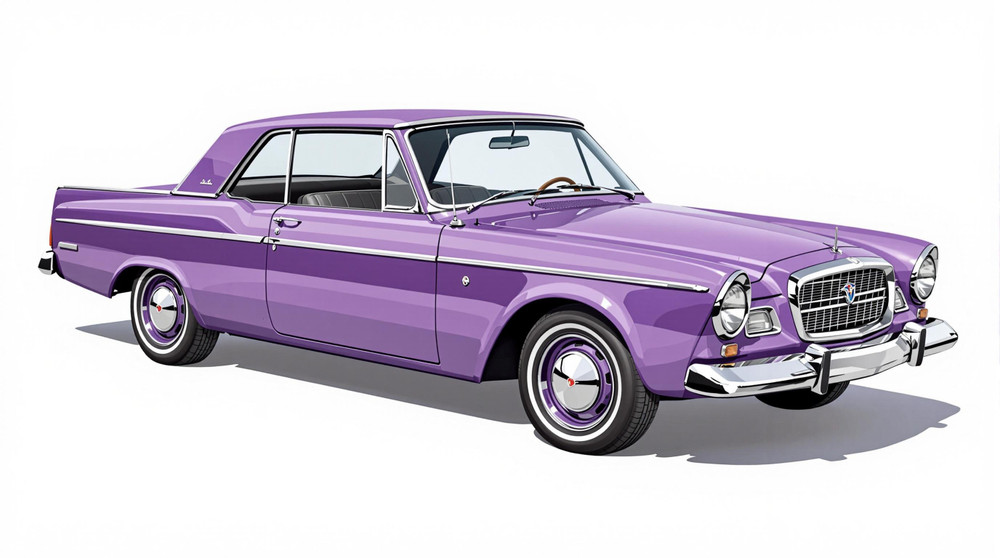Image of 1966 Studebaker Commander, Note: These illustrations use artistic license and may differ from actual historical models.
Performance Metrics
Fundamental Metrics
Emotional Appeal
MMP Rating
| Engine Specifications | |
|---|---|
| Engine: | 194 cu in (3.2 L) I6, 230 cu in (3.8 L) I6, 283 cu in (4.6 L) V8 |
| Displacement: | 3.2L - 4.6L |
| Horsepower: | 120-195 hp |
| Torque: | 175-275 lb-ft |
| Compression Ratio: | 8.0:1 - 8.5:1 |
| Ignition System: | Conventional points ignition system |
| Cooling System: | Liquid-cooled |
| Performance Specifications | |
| 0-60 Time: | Estimated 10-12 seconds |
| 1/4 Mile Time: | Estimated 17-19 seconds |
| Top Speed: | 100-120 mph |
| Transmission and Drive | |
| Drive Type: | Rear-wheel drive |
| Transmission Type: | 3-speed manual, 4-speed manual, 2-speed automatic, 3-speed automatic |
| Fuel and Efficiency | |
| Fuel System Type: | Carburetor |
| MPG: | Estimated 15-20 mpg |
| Dimensions and Brakes | |
| Brakes: | Drum brakes |
| Wheelbase: | 113 inches |
| Weight: | 3,000-3,500 lbs |
Note: Specifications for classic cars are given to the best of our ability, considering the limited and variant data available.
Introduction
The 1966 Studebaker Commander is a testament to the resilience and innovation of an American automaker that dared to challenge the status quo. Born from the Studebaker Corporation, a company with roots reaching back to the days of horse-drawn wagons, this vehicle emerged during a tumultuous time for the manufacturer. As one of the last models produced before Studebaker's closure in 1966, the Commander holds a special place in automotive history. Notably, it was among the final cars to roll off the assembly line at the South Bend plant, marking the end of an era for the legendary brand.
Design and Innovation
The 1966 Studebaker Commander's exterior styling was a blend of classic elegance and modern lines, reflecting a transitional period in automotive design. Its body was adorned with subtle curves and a poised grille that commanded attention without being ostentatious. Inside, passengers were greeted with a functional yet stylish interior, boasting materials that balanced durability with comfort. Technological features such as an AM radio and optional air conditioning were considered luxuries at the time. The Commander came in a variety of color options, with Monte Carlo Red and Skyline Blue being among the popular choices. Available in both two-door and four-door body styles, it was the four-door sedan that became emblematic of the model's practical appeal.
Historical Significance
The 1966 Commander's impact on automotive design may not have been revolutionary, but its significance lies in its representation of Studebaker's final push against industry giants. It stood out for its compact size and affordability during an era when American cars were often large and opulent. This model encapsulated Studebaker's commitment to offering value and efficiency at a time when such concepts were only beginning to gain traction in the market.
Performance and Handling
Equipped with a 283 cubic inch V8 engine, the '66 Commander offered respectable performance for its class, with top speeds that could reach over 100 mph—a commendable feat for a modest family car. Acceleration from 0-60 mph was achieved in just over 10 seconds, which was quite competitive at that time. On the road, drivers appreciated its poised handling; though not sporty by today's standards, it navigated bumps and windy conditions with confidence. Behind the wheel, one could enjoy the characteristic rumble of its engine—a sound that evoked the essence of American motoring.
Ownership Experience
The Studebaker Commander served various roles ranging from a reliable daily driver to a cherished show car. Its straightforward mechanical design made maintenance relatively easy for owners who were mechanically inclined. While reliability was generally good for its era, finding parts has become more challenging over time due to Studebaker's departure from the automotive scene.
Fun Facts
This classic has its share of trivia; for instance, some Commanders were equipped with disc brakes—an advanced feature for vehicles at that time. Although not known for breaking speed records or dominating sales charts, it has held its own as an enduring symbol of Studebaker's legacy. Criticisms often centered on its conservative styling and modest power compared to muscle cars of that period.
Collector's Information
Today, values for a well-preserved 1966 Studebaker Commander can vary widely based on condition, originality, and history. A rough estimate suggests that prices can range from $5,000 for models in need of restoration to upwards of $20,000 or more for pristine examples. Production numbers were relatively low due to Studebaker's financial struggles; therefore, surviving Commanders are somewhat rare finds on the collector market. As interest in less mainstream classics grows, values may continue to appreciate modestly over time.
Conclusion
The 1966 Studebaker Commander stands as a poignant reminder of an automaker that valiantly fought against overwhelming odds. It embodies an era where change was imminent and represents the final chapter in Studebaker's storied history. For enthusiasts and collectors alike, owning a Commander is not just about possessing a piece of automotive heritage—it's about driving a narrative of perseverance and American ingenuity.
1966 Studebaker Commander Catalog of Parts
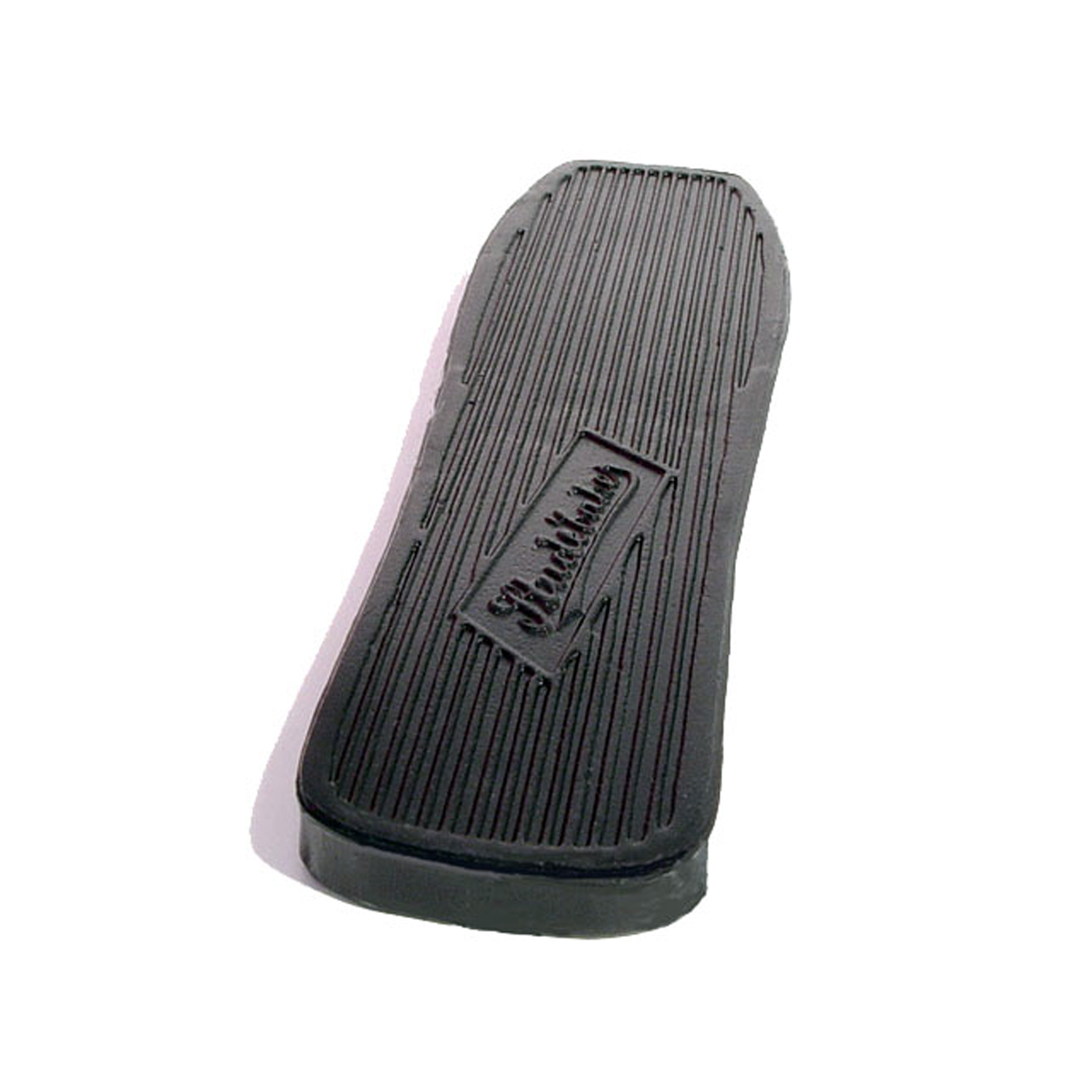 1966 Studebaker Commander Accelerator Pedal Pad, 2-3/8" X 9", Each-AP 22Accelerator Pedal Pad, 2-3/8" X 9", Each
1966 Studebaker Commander Accelerator Pedal Pad, 2-3/8" X 9", Each-AP 22Accelerator Pedal Pad, 2-3/8" X 9", Each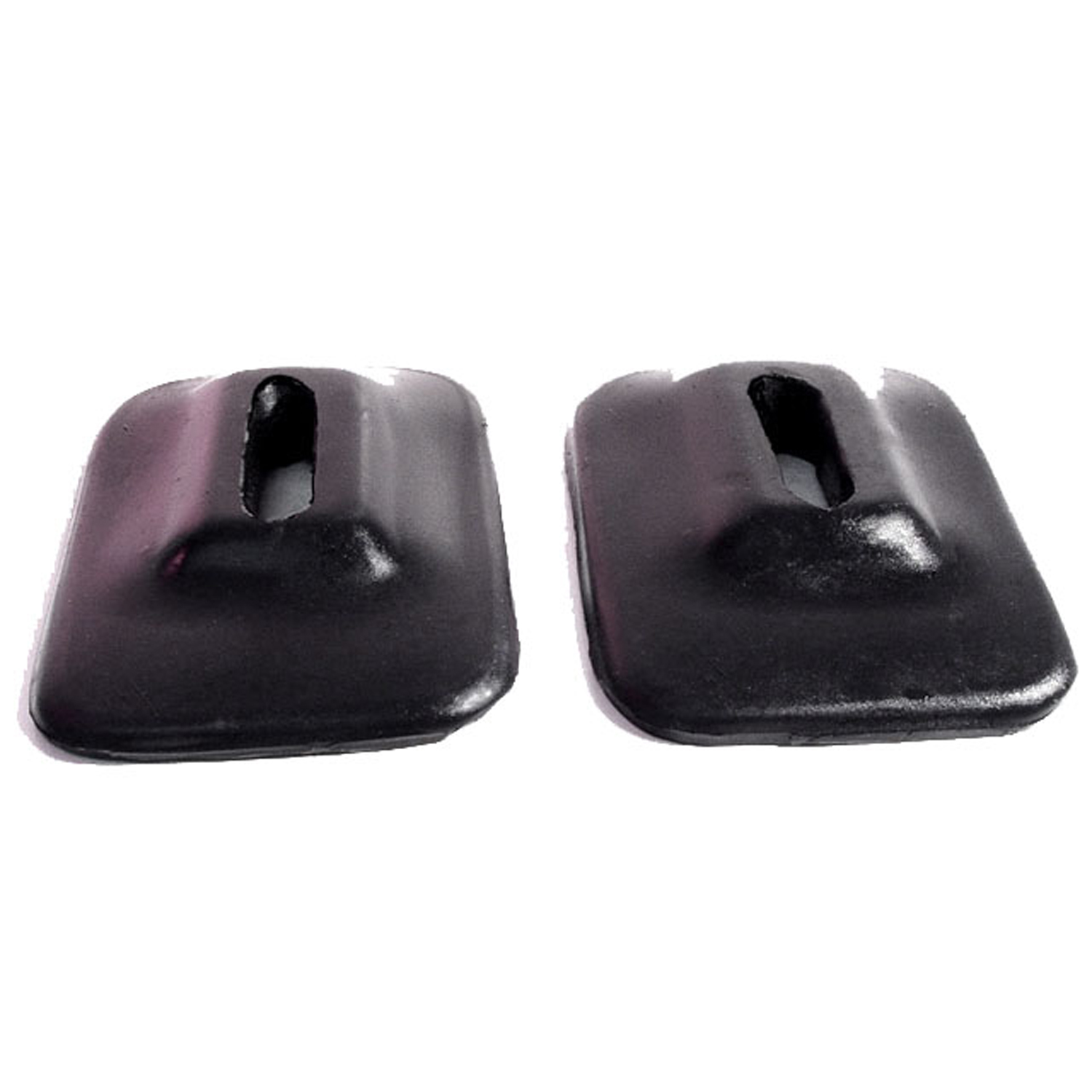 1966 Studebaker Commander Front and Rear Bumper Arm Grommets-BG 45Front and Rear Bumper Arm Grommets. 2-3/4" wide X 4-1/8" long, with 1-5/8" long inner slot. Pair
1966 Studebaker Commander Front and Rear Bumper Arm Grommets-BG 45Front and Rear Bumper Arm Grommets. 2-3/4" wide X 4-1/8" long, with 1-5/8" long inner slot. Pair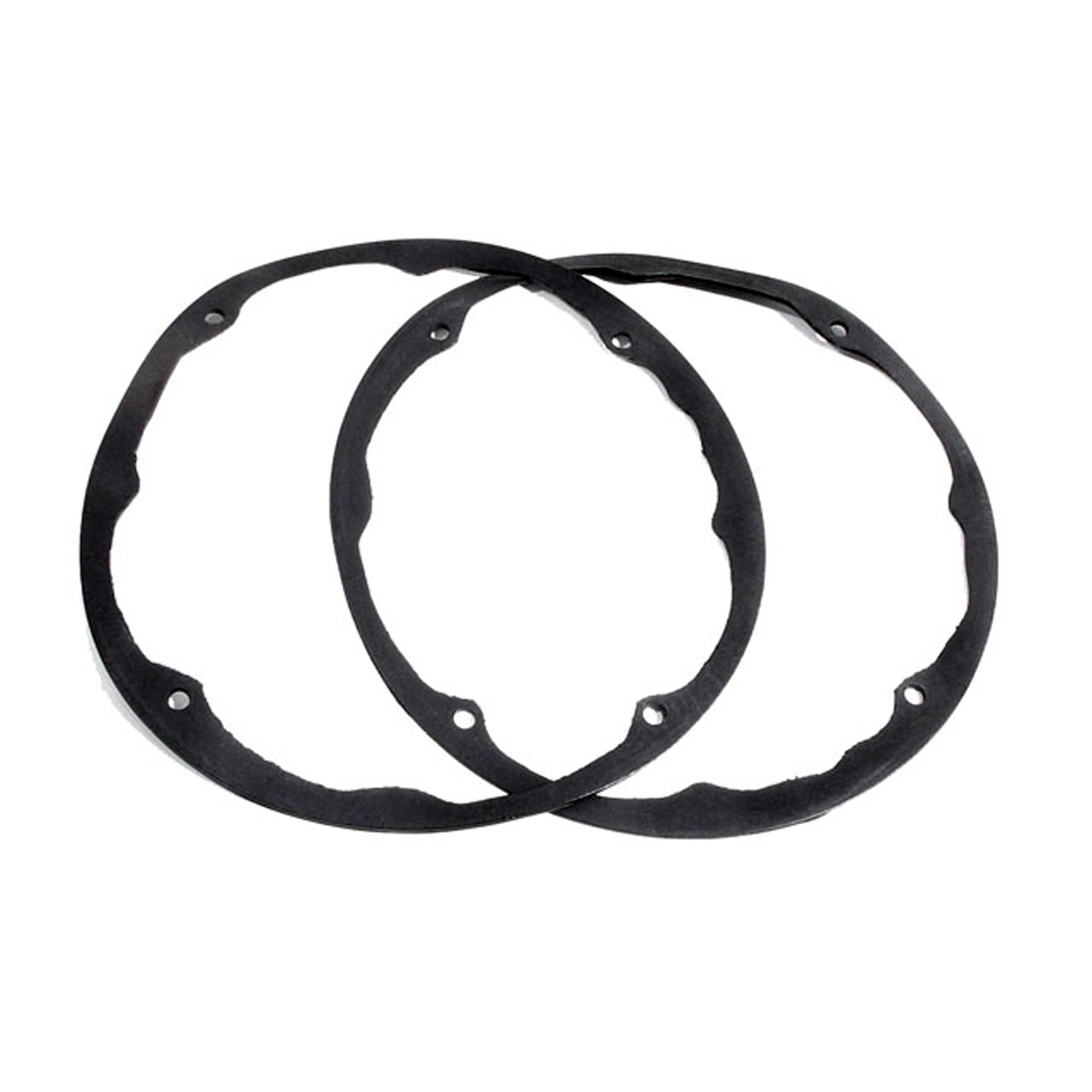 1966 Studebaker Commander Headlight Ring Seal. 8-5/8" O.D., 7-7/8" I.D. Pair-HR 16Headlight Ring Seal. 8-5/8" O.D., 7-7/8" I.D. Pair
1966 Studebaker Commander Headlight Ring Seal. 8-5/8" O.D., 7-7/8" I.D. Pair-HR 16Headlight Ring Seal. 8-5/8" O.D., 7-7/8" I.D. Pair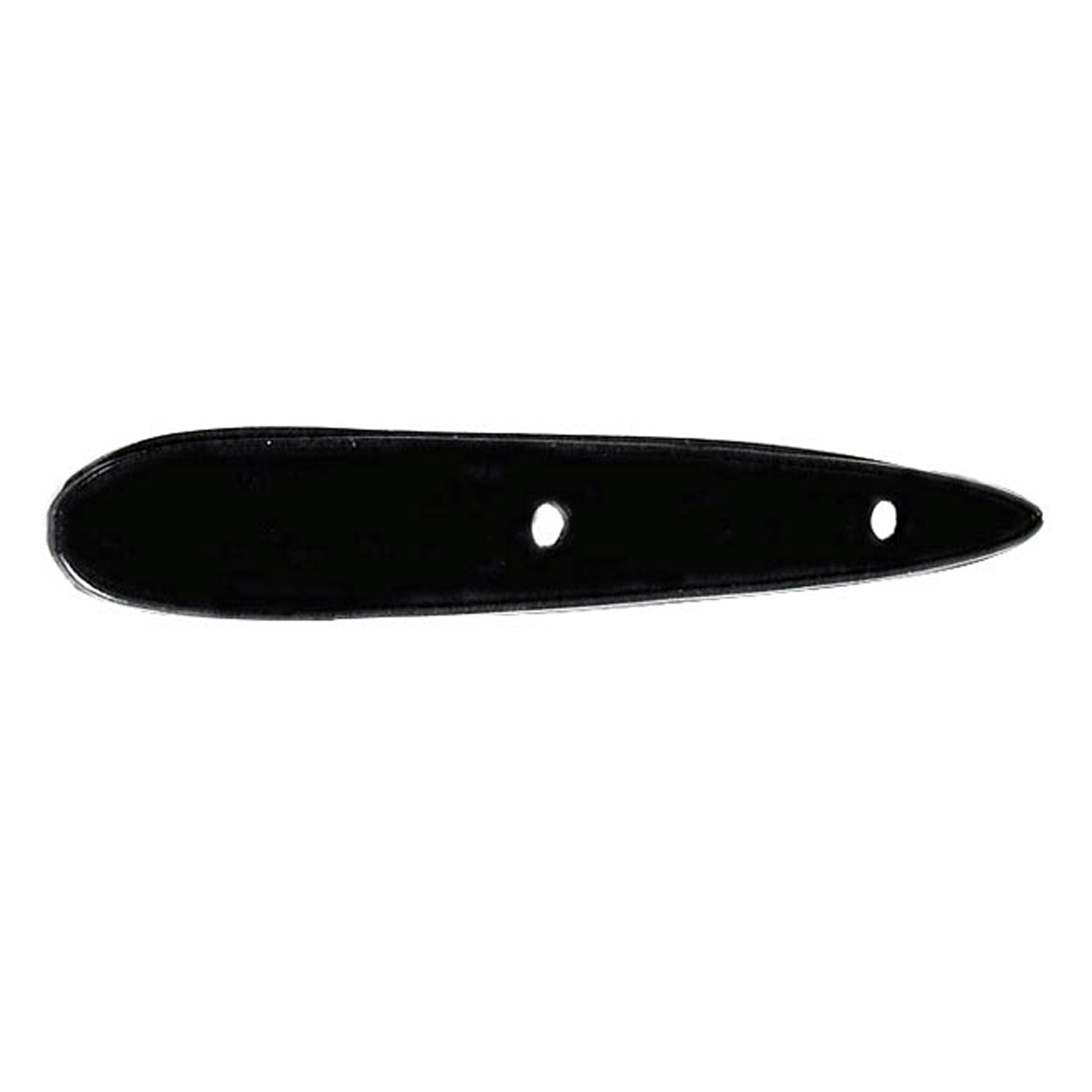 1966 Studebaker Commander Mirror Pad. Similar to MP 965-B, check dimensions-MP 965-AMirror Pad. Similar to MP 965-B, check dimensions. 1" wide X 7" long. Each
1966 Studebaker Commander Mirror Pad. Similar to MP 965-B, check dimensions-MP 965-AMirror Pad. Similar to MP 965-B, check dimensions. 1" wide X 7" long. Each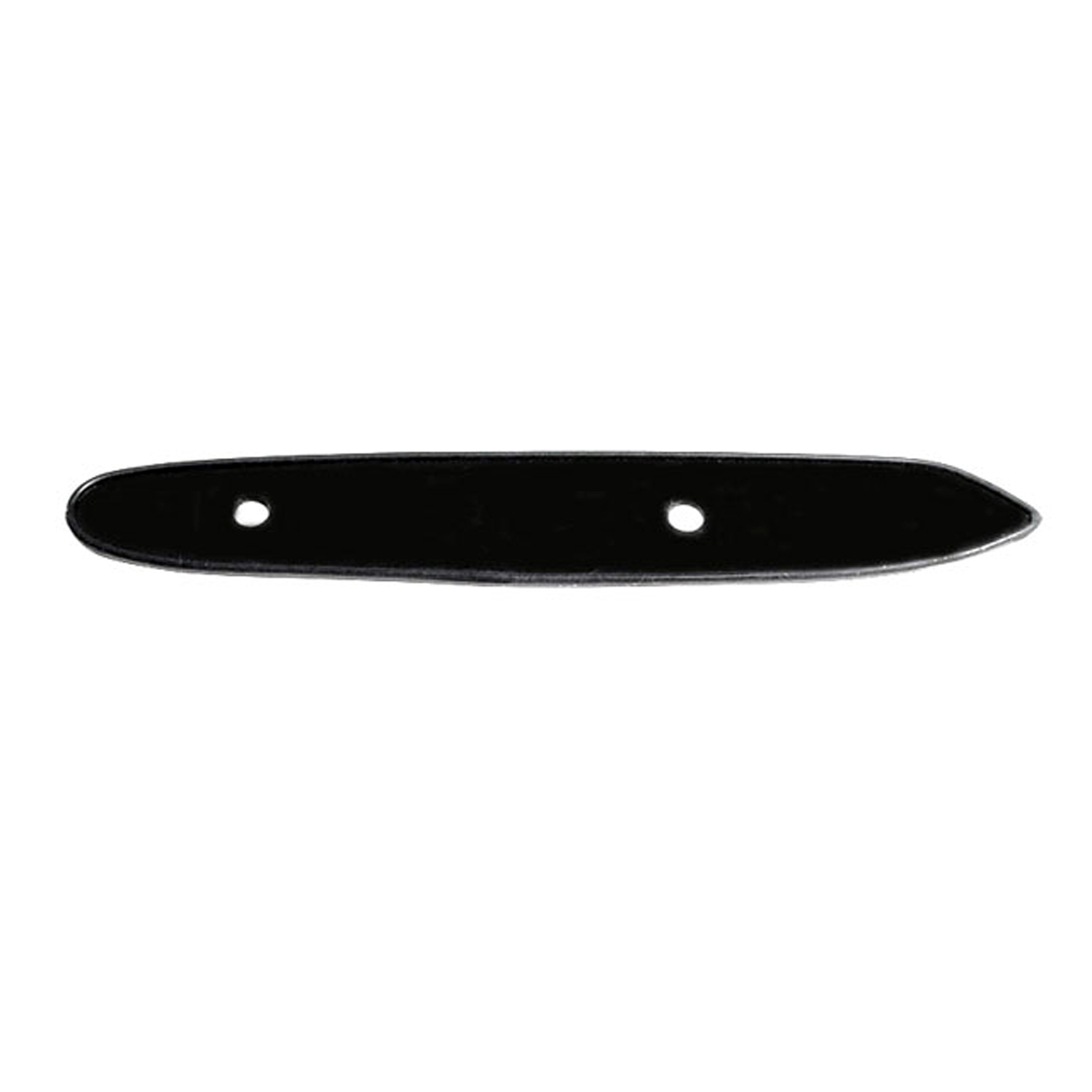 1966 Studebaker Commander Mirror Pad. Similar to MP 965-A, check dimensions-MP 965-BMirror Pad. Similar to MP 965-A, check dimensions. 1-1/8" wide X 6-3/4" long. Each
1966 Studebaker Commander Mirror Pad. Similar to MP 965-A, check dimensions-MP 965-BMirror Pad. Similar to MP 965-A, check dimensions. 1-1/8" wide X 6-3/4" long. Each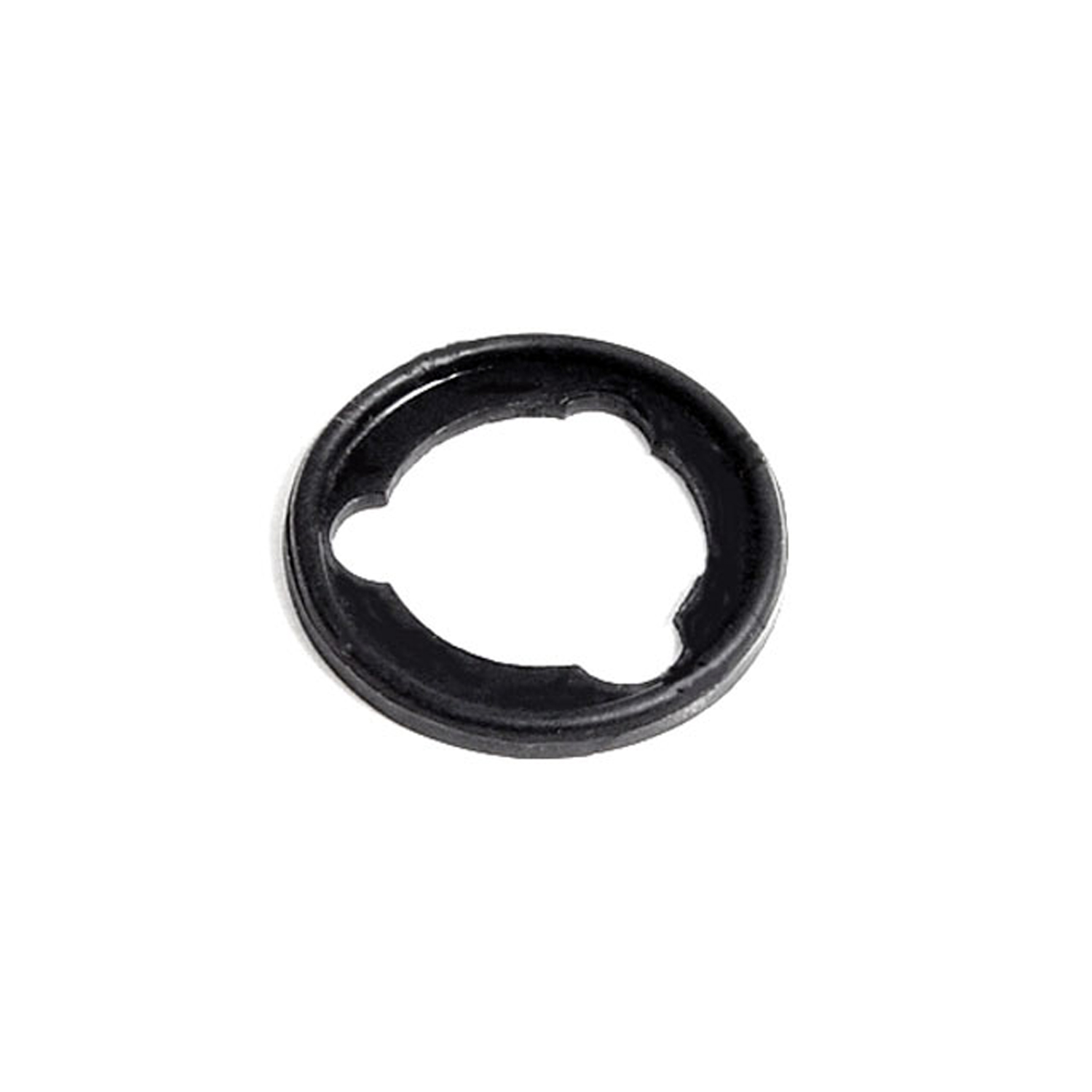 1966 Studebaker Commander Door Lock Pad. 1-1/8" O.D. Each-MP 979Door Lock Pad. 1-1/8" O.D. Each
1966 Studebaker Commander Door Lock Pad. 1-1/8" O.D. Each-MP 979Door Lock Pad. 1-1/8" O.D. Each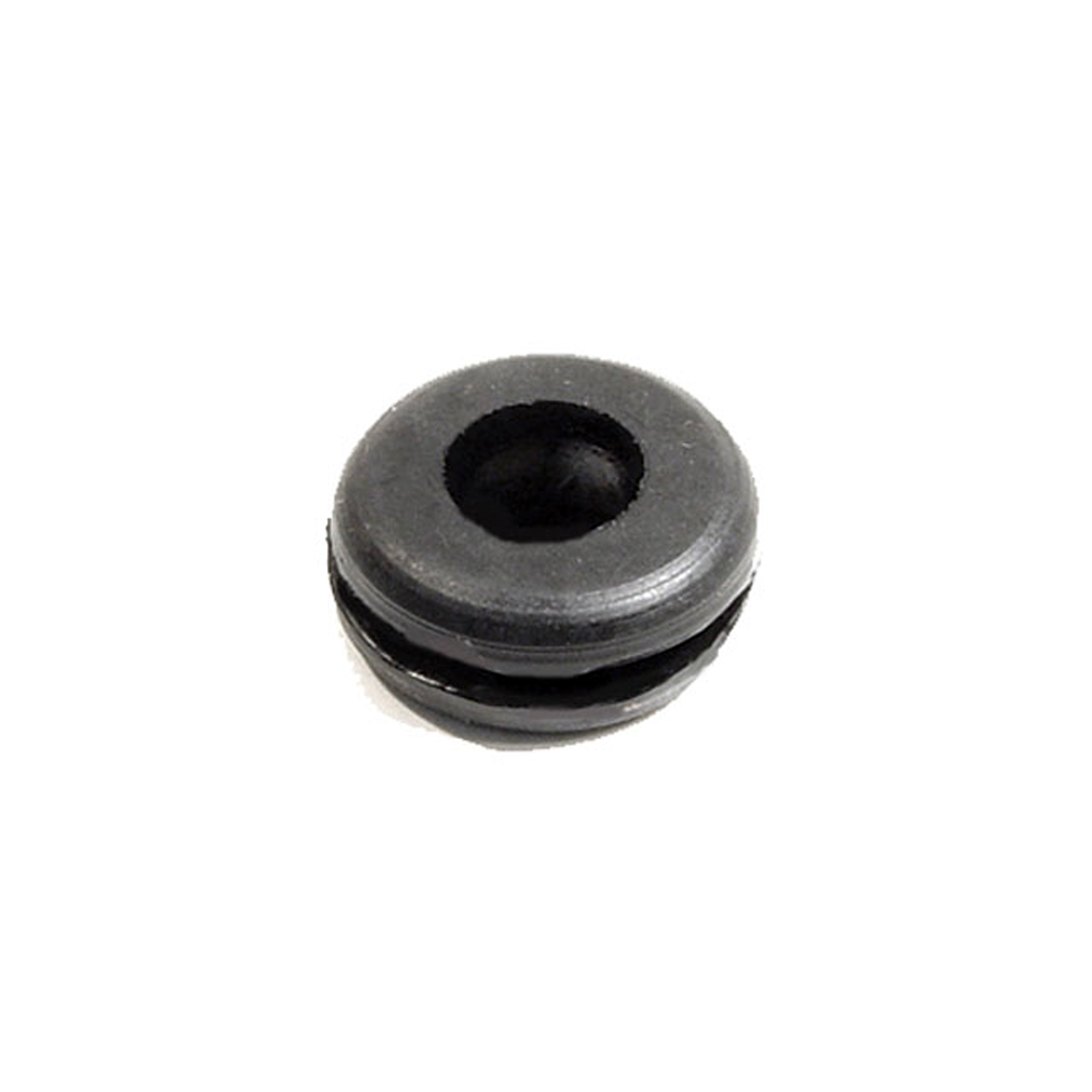 1966 Studebaker Commander Headlight & Tail-Light Wire Grommet. 3/8" I.D., 7/8" O.D-SM 13-AHeadlight & Tail-Light Wire Grommet. 3/8" I.D., 7/8" O.D. Each
1966 Studebaker Commander Headlight & Tail-Light Wire Grommet. 3/8" I.D., 7/8" O.D-SM 13-AHeadlight & Tail-Light Wire Grommet. 3/8" I.D., 7/8" O.D. EachWhy Choose Metro?
For over 100 years, Metro Moulded Parts has been the pinnacle of quality in classic car restoration parts. Our commitment to precision and authenticity in every component ensures a perfect fit and an OEM-level appearance.
- Expert Craftsmanship & Quality: Each part is a testament to our dedication to reliability and perfection, crafted from original designs and thoroughly tested.
- Advanced Technology: We use cutting-edge techniques to create flawless, long-lasting parts that surpass others in performance.
- SuperSoft Sponge – The Ultimate Door Seal: Not only are our door seals 30% softer than competitors', but they're also guaranteed to never leak. They effectively reduce wind and road noise, enhancing your classic car's comfort and driving experience.
- Proudly American: Our parts are a product of American craftsmanship, made in the USA with a spirit of excellence and heritage.
- Unrivaled Warranty: We back our products with a 30-year industry-leading warranty, a testament to our confidence in their quality.
Join us in preserving the legacy of classic cars with parts that are crafted for perfection, not just made.

